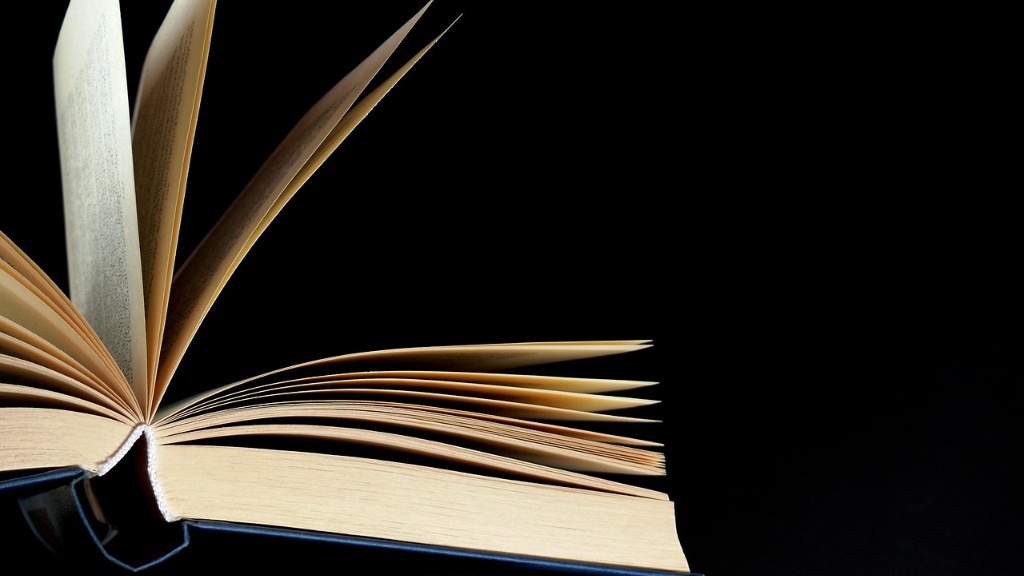Why Does Poetry Matter?
Poetry affects people on a deep, emotional level. When reading a poem, it is easy to be swept away by the beauty of the words and transported into another world. But why does poetry matter? We explore the different facets of poetry and examine some of the moments when it can have a profoundly impactful role in our lives.
From ancient times, poetry has been used to evoke feelings in people and to tell stories. One example of this is the Homeric epics such as The Iliad and The Odyssey, which were written by the ancient Greeks. These stories were meant to educate and inspire people, and they still have the power to do so today.
In many cultures, poetry is still at the heart of traditions, such as weddings and other celebrations. The words of classic poems can often add a profound depth of emotion to these special occasions. Furthermore, poetry can be used to share important messages and to help us to remember the past. One example of this is the poem “Do Not Stand at My Grave and Weep” by Mary Elizabeth Frye. This poem was written in 1932 and it has become a classic piece of literature.
Poetry also has a huge impact on individuals. It can be used to express love, grief, pain, and joy in ways that touch us deeply. It can be used to process difficult experiences and to find meaning in the world around us. Many poets believe that poetry can be used to help us overcome emotional trauma, break down barriers, and build bridges between people from different backgrounds. This is something that many people can benefit from.
At times, poetry can also be seen as a form of escapism. People who are feeling overwhelmed by their lives may turn to poetry to provide solace and help them to make sense of their emotions. Poetry can be uplifting and cause us to reflect on our lives in meaningful ways. Furthermore, the act of writing or reciting a poem is often seen as a cathartic experience.
Ultimately, poetry matters because it has the power to connect us with our emotions and experiences in a unique and powerful way. Whether we are moved to tears or inspired to action, poetry can be a source of comfort and an invaluable tool for self-expression.
The Role of Poetry in Education
Poetry has an important role to play in the education of children and young people. It can help to develop a love of language and encourage creative thinking. As well as being delightful and entertaining, poetry can be used to connect people to different points of view and to spark conversations about important topics like identity, politics, and society.
At the same time, poetry can also help students to develop skills such as critical thinking, analytical writing, and problem-solving. For example, reciting or writing poems can provide an opportunity to practise different techniques such as meter, rhyme scheme, and metaphor. These skills are essential to many areas of study and they can help students to explore a range of topics in a way that is engaging and meaningful.
In addition to this, teaching poetry can also help to raise awareness of social and cultural issues. By using poems to discuss topics such as racism, sexism, or inequality, teachers can provide an opportunity for students to reflect on their own beliefs and opinions.
Overall, poetry can be an invaluable addition to any educational setting. Whether it is used in the classroom, during assemblies, or at extracurricular activities, it can enrich the student experience and provide opportunities for engagement and discussion.
The Power of Poetry
Poetry has an incredible power to move us, to inspire us, and to challenge us. It has the potential to show us the beauty in the world and to give us hope in times of adversity. For this reason, it is no surprise that poetry continues to be popular, even in the Internet age.
As the famous English poet W H Auden once wrote, “poetry makes nothing happen”, but this is not entirely true. Poetry has the power to make us think, to see the world in a different light, and to make a difference in people’s lives. With this in mind, it becomes clear why poetry is so important and why it will continue to be valued for years to come.
The Impact of Poetry on Mental Health
Many people find that using poetry as a form of self-expression can be beneficial to their mental health. Creating poems can provide an opportunity to express emotions that might otherwise remain buried, and reading them can help to give clarity to feelings of confusion. Poetry can help us to understand ourselves and our experiences better and can even be used for therapy.
In fact, a recent study found that a program called “Poetry in Motion”, which uses poetry to address depression and anxiety, has been successful in reducing symptoms of mental illness in adults. This shows that poetry can be an incredibly powerful tool when it comes to tackling mental health issues.
Furthermore, it is important to note that poetry is not just for people who are struggling with mental health issues. Anyone can benefit from reading or writing poetry and it can provide an important source of comfort and solace, no matter what you are going through.
The Role of Poetry in Society
Poetry can be used to bring about social change, to challenge the status quo, and to raise awareness of important issues. From the revolutionary works of William Blake and Maya Angelou to modern poets such as Warsan Shire and Saeed Jones, poetry has long been used to make a statement and to express dissent.
Today, poetry continues to be an invaluable way of raising awareness of issues like racism, sexism, climate change, poverty, and injustice. Through its power to engage, to educate, and to inspire, it has the potential to create real and lasting change.
The Future of Poetry
As we move into the future, it is clear that poetry will remain an important and powerful form of expression. It can be used to communicate emotions, to make us think, and to bring about change. Although the world is changing rapidly, poetry will continue to have a role to play in our lives for many years to come.
In this ever-evolving digital age, it is more important than ever to encourage young people to read and to write poetry. As well as helping to develop their literacy skills, this can provide an opportunity for self-expression and a way to make sense of the world around them.
Poetry as an Art Form
Beyond its practical applications, poetry can be a source of beauty and joy. For many people, writing or reading a poem can be an incredibly rewarding experience. It is a way to make meaning out of the world around us, to create something unique and special, and to share our ideas with others.
By using language to create vivid images in our minds, poetry can allow us to escape our everyday lives and to explore new perspectives and ideas. It can bring us joy, comfort us in times of sorrow, or simply provide us with a few moments of pleasure.
For these reasons, it is clear that poetry is an art form that is worth appreciating and celebrating. It is a testament to the power of language and the beauty that can be unlocked with a few simple words.





